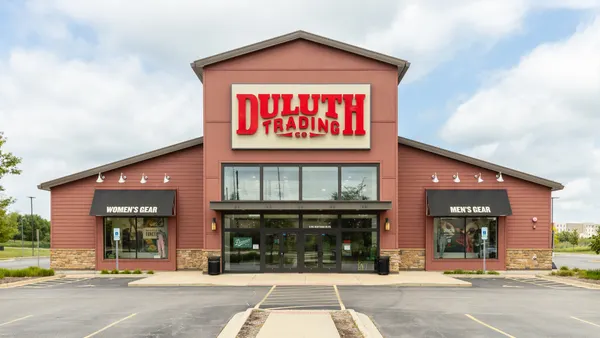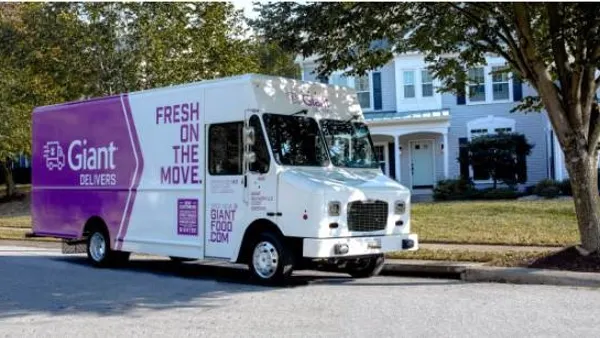Dive Brief:
- Amazon's e-commerce sales are leading to such a crunch in warehouse space, the company is fining for storage of off-season products and is now giving merchants the ability to store others' goods.
- The newest program allows independent sellers to list their merchandise as "Prime Eligible" even when self-shipped, Bloomberg reported Thursday.
- Though the e-commerce giant is building 15 new warehouses in California, Texas, Illinois, Kansas, New Jersey, Georgia and Florida that will ultimately employ at least 12,000 workers, current space shortages are driving its innovation.
Dive Insight:
Amazon's model typically requires vendors to store their inventory within its warehouses for quick and direct shipping to the consumer. The model allows the company to cut the inbound step from the logistics process much like on-site shopping does for the consumer. Now, the Prime-eligible designation seeks to innovate its own model and partly remove the warehouse from the equation.
The main issue with the new proposal, though, is that Amazon must thoroughly vet the independent vendor to ensure the packaging and shipping procedures are up to the company's standards. The Bloomberg report notes the process is rigorous and leaves little wiggle room on late shipments or returns.
Regardless, the program is likely necessary if it wants to scale its inventory according to rapidly rising demands. Warehouses will not go out of style anytime soon, but they take a while to build and, specially during peak season, may not offer enough space.
Reflecting on these challenges, other companies are also seeking to use individual storefronts for extra space. GameStop, for example, ships many of its online orders directly from stores rather hubs; AutoZone is creating regional hubs to facilitate same-day processing; FedEx is storing goods for Newegg to ensure safety; and warehousing startup Flexe is looking to connect storage space with needs through an AirBnB-styled model.













